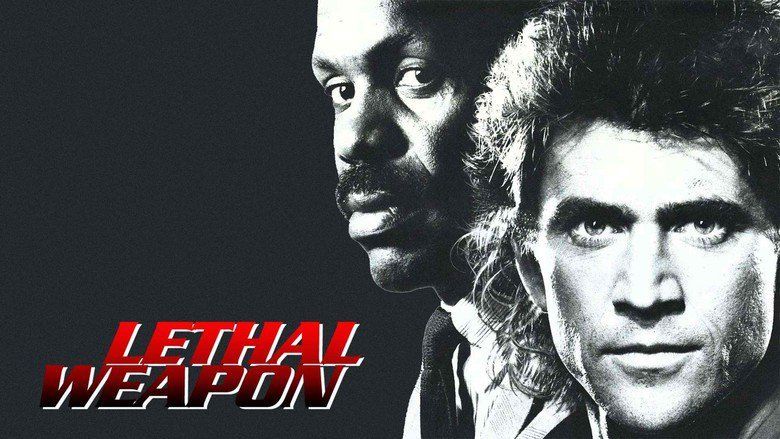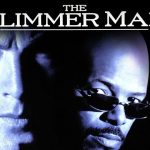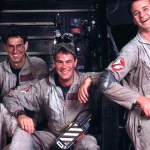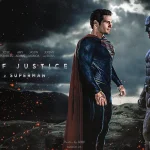Lethal Weapon (1987)

Review of Lethal Weapon (1987)
Lethal Weapon (1987), directed by Richard Donner and written by Shane Black, is a defining entry in the action genre and one of the most iconic buddy cop films ever made. With its blend of sharp dialogue, high-octane action, and compelling character dynamics, the film set the stage for a successful franchise that would spawn three sequels and cement the legacy of its two lead stars, Mel Gibson and Danny Glover. The movie’s lasting appeal is not only due to its thrilling action sequences but also its focus on the human side of its protagonists, particularly their emotional struggles and contrasting personalities.
At its core, Lethal Weapon is a story about two mismatched police officers who are forced to work together despite their vastly different approaches to law enforcement. The film’s success comes from the way it explores their personal issues while still delivering pulse-pounding action, sharp humor, and moments of heart. Mel Gibson and Danny Glover’s performances as Martin Riggs and Roger Murtaugh, respectively, remain one of the most memorable duos in action film history, and their chemistry drives the film’s success.
Plot: The Unlikely Partnership
Lethal Weapon opens with a shocking and visceral sequence that immediately sets the tone for the film: a woman jumps to her death from a high-rise building. This suicide is the catalyst for the film’s main investigation, which centers around a group of mercenaries involved in a series of crimes. At the heart of the story are two very different detectives: the reckless and suicidal Martin Riggs (Mel Gibson) and the seasoned, family-oriented Roger Murtaugh (Danny Glover).
Riggs is a former special forces operative who has been deeply affected by the death of his wife. His grief and sense of loss have led him to live dangerously, with a complete disregard for his own safety. Riggs’s reckless behavior makes him a liability to his colleagues and his superiors, who are looking for a way to get rid of him. However, his world is turned upside down when he is assigned to partner with the more grounded and pragmatic Murtaugh, a 50-year-old family man who is just days away from his retirement.
The central conflict of the film arises from the friction between these two characters. Murtaugh, who has spent years carefully avoiding the dangers of police work, finds himself constantly frustrated with Riggs’s impulsive, daredevil approach. Riggs, in turn, sees Murtaugh as an old man who is out of touch with the gritty, violent world of law enforcement. However, over time, the two men begin to develop a deep mutual respect, and their partnership is tested when they uncover a conspiracy involving drugs, mercenaries, and the shadowy criminal organization run by the film’s main antagonist, Mr. Joshua (Gary Busey).
As the investigation escalates, the film moves between tense action set pieces, character-driven moments, and emotional arcs for both Riggs and Murtaugh. Ultimately, the two men must work together to stop a dangerous plot, but they also have to confront their own personal demons along the way.
Themes: Friendship, Redemption, and Self-Destruction
One of the most compelling aspects of Lethal Weapon is the way it delves into the psychology of its two lead characters. Riggs is introduced as a man who has lost everything — his wife, his will to live, and his sense of purpose. His reckless behavior is a manifestation of his inner turmoil, and he constantly puts himself in life-threatening situations because he doesn’t care whether he survives. This self-destructive behavior is part of what makes him an interesting and complex character.
At first, Riggs’s character seems almost like a ticking time bomb — a man on the edge, waiting for the final push. It’s only through his partnership with Murtaugh that Riggs begins to reconnect with his humanity. Murtaugh, with his stable family life and sense of duty, serves as a stabilizing force for Riggs, gradually pulling him out of the darkness. Their relationship evolves from one of mutual disdain to a deep friendship built on trust, respect, and shared experiences. Murtaugh becomes a surrogate father figure for Riggs, helping him deal with his grief and guiding him back toward a sense of purpose.
The film also explores the theme of redemption. Riggs’s journey is one of healing, as he moves from a man on the verge of complete self-destruction to someone who once again finds a reason to live — not just for himself, but for his new partner and his new family. Murtaugh’s own journey is one of understanding and growth as well, as he learns to embrace the chaos of his partner’s world and to care for someone beyond the confines of his own family.
At the heart of Lethal Weapon is the theme of unlikely friendship. Riggs and Murtaugh come from completely different worlds, but their shared experiences and mutual respect create a bond that transcends their differences. The film shows that even in the darkest moments, connection and companionship can offer hope and salvation.
The Action: Thrills and Explosions
Lethal Weapon doesn’t just excel in its character-driven moments; it also delivers some of the most exciting and intense action sequences of the 1980s. Richard Donner, a seasoned director known for his work on the Superman films and the Goonies, effectively balances action with character development, ensuring that the film never loses sight of its emotional core.
The action scenes in Lethal Weapon are tightly choreographed and, while not as over-the-top as later action films, they pack a punch. The film features a number of memorable moments, including high-speed chases, brutal hand-to-hand combat, and an unforgettable scene in which Riggs confronts Mr. Joshua in a deadly showdown. These sequences are often punctuated by humor, as the dynamic between Riggs and Murtaugh provides comic relief amidst the tension. One of the film’s most iconic moments is the “I’m too old for this shit” line, delivered by Murtaugh, which became a hallmark of the buddy cop genre.
The film also effectively uses its setting in Los Angeles, with the urban landscape providing a gritty backdrop for the action. The city’s vast, sprawling streets, dark alleys, and ominous locations serve as perfect places for the film’s high-stakes pursuits and shootouts.
The Performances: Gibson and Glover Shine
Mel Gibson and Danny Glover’s performances in Lethal Weapon are the heart and soul of the film, and their chemistry is what makes it so memorable. Gibson brings a raw intensity to the role of Martin Riggs, capturing both the character’s pain and his reckless charm. His portrayal of a man on the edge is both haunting and captivating, and he adds depth to what could have been a one-dimensional action hero.
Danny Glover, as Roger Murtaugh, provides the perfect counterbalance to Gibson’s manic energy. Glover’s portrayal of Murtaugh as a seasoned, family-oriented cop is grounded and relatable. He infuses the character with a wisdom that comes from experience, and his reactions to Riggs’s antics are both comical and sympathetic. Murtaugh’s warmth and patience gradually break through Riggs’s emotional walls, and their growing friendship feels authentic and earned.
The supporting cast is also strong. Gary Busey plays the film’s main antagonist, Mr. Joshua, with a manic energy that makes him a compelling threat. Busey’s portrayal is menacing and intense, providing an excellent foil to the more measured personalities of Riggs and Murtaugh. The film also features a memorable performance by Mitch Ryan as the shady arms dealer, General McAllister, whose connections to the mercenaries add layers to the plot.
The Direction: A Perfect Blend of Action and Heart
Richard Donner’s direction is central to Lethal Weapon’s success. He balances the film’s explosive action with moments of character introspection, giving the audience a chance to connect with the protagonists on an emotional level. The pacing of the film is well-handled, never losing momentum even when the action gives way to character-building scenes.
Shane Black’s script is sharp, witty, and filled with memorable one-liners that add humor to the film without undermining its more serious moments. The dialogue between Riggs and Murtaugh is some of the best in the genre, with the banter between the two characters offering both comic relief and insight into their evolving friendship.
Legacy: The Birth of the Buddy Cop Genre
Lethal Weapon is one of the films that defined the “buddy cop” genre, influencing numerous films and TV shows that followed. The idea of pairing two mismatched characters with contrasting personalities became a staple of action movies, and Lethal Weapon set the template for many of the films that would follow in the 1980s and beyond. It also helped solidify the action film as a genre capable of blending heart, humor, and drama alongside its explosive set pieces.
The film’s success led to three sequels, each of which continued the story of Riggs and Murtaugh and built on their already legendary partnership. Though the sequels have varying degrees of success, the original Lethal Weapon remains the gold standard for the series.
Conclusion: A Timeless Classic
Lethal Weapon (1987) is a perfect blend of action, heart, and humor. Its compelling characters, thrilling action sequences, and sharp script make it a timeless classic of the genre. The chemistry between Mel Gibson and Danny Glover is the film’s driving force, turning what could have been a standard action flick into something far more meaningful. Lethal Weapon is not just about explosions and shootouts — it’s a film about two men learning to heal, grow, and become friends, despite their differences. As a result, it has stood the test of time as one of the best buddy cop films ever made, and its legacy continues to influence action movies today.











